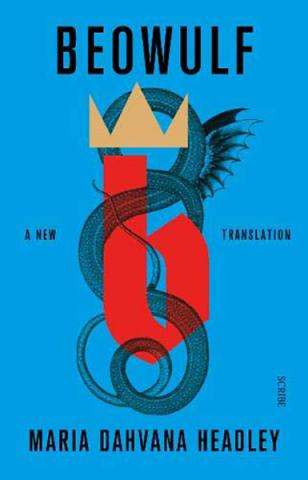Det här är en butiksvara. Den kan endast köpas i våra fysiska butiker, inte beställas via näthandeln. Använd gärna funktionen Hämta i butik för att boka din vara för avhämtning i butik.
| Finns i lager? | ||
|---|---|---|
| Webblager | ||
| Stockholm | Hämta i butik | |
| Göteborg | Hämta i butik | |
| Malmö | ||
Nearly twenty years after Seamus Heaney's translation of Beowulf -- and fifty years after the translation that continues to torment high-school students around the world -- there is a radical new verse translation of the epic poem by Maria Dahvana Headley, which brings to light elements never before translated into English.
A man seeks to prove himself as a hero. A monster seeks silence in his territory. A warrior seeks to avenge her murdered son. A dragon ends it all. These familiar components of the epic poem are seen with a novelist's eye toward gender, genre, and history. Beowulf has always been a tale of entitlement and encroachment -- of powerful men seeking to become more powerful and one woman seeking justice for her child -- but this version brings new context to an old story. While crafting her contemporary adaptation, Headley unearthed significant shifts lost over centuries of translation; her Beowulf is one for the twenty-first century.
A man seeks to prove himself as a hero. A monster seeks silence in his territory. A warrior seeks to avenge her murdered son. A dragon ends it all. These familiar components of the epic poem are seen with a novelist's eye toward gender, genre, and history. Beowulf has always been a tale of entitlement and encroachment -- of powerful men seeking to become more powerful and one woman seeking justice for her child -- but this version brings new context to an old story. While crafting her contemporary adaptation, Headley unearthed significant shifts lost over centuries of translation; her Beowulf is one for the twenty-first century.
Andra har också köpt
Rivers of London
179 kr
Ms Marvel Vol 3: Crushed
199 kr
The Unbeatable Squirrel Girl Vol 1: Squirrel Power
100 kr
Ord. 199 kr
Space Opera
179 kr
